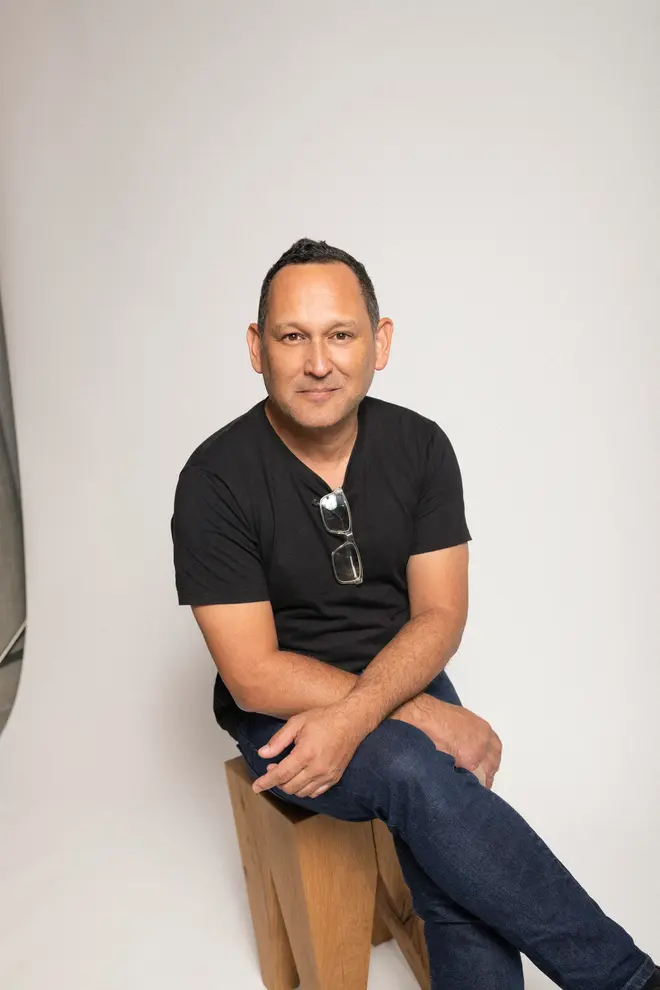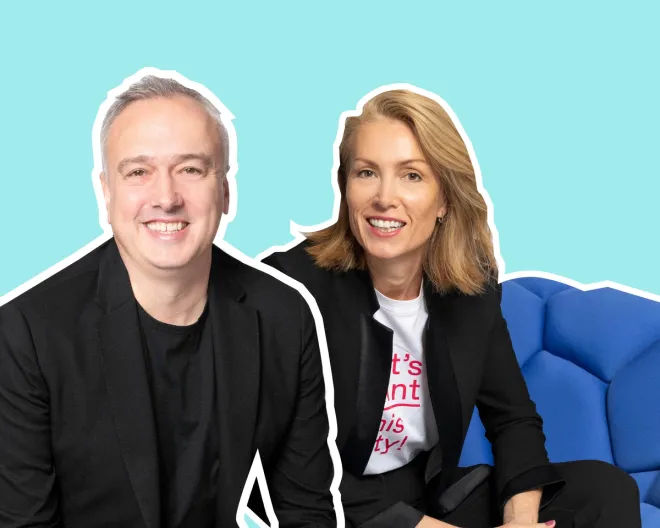BVN Stories, Events — December 20, 2022
Belonging in the Future: Futures Forum
Mid December saw BVN immersed in its own festival of ideas – an epic 3 day event called Futures Forum.
A BVN initiative established in 2012, Futures Forum’s purpose is to encourage discovery and discourse within our Practice.
Adopting the words of acclaimed Canadian author John Ralston Saul, Futures Forum is designed for us to ‘waste’ time thinking about our place in the world and how we influence possible futures.
At each Futures Forum, we invite special guest speakers to share their knowledge and explore critical topics of our time. This year, we were treated to conversations with:
- Stan Grant: Journalist and author
- John Ralston Saul: Writer, political philosopher and public intellectual
- Roland Snooks: Associate Professor, School of Architecture & Design at RMIT
- Imogen Senior: Youth activist
- Alyse Sue: Co-Founder, Transhuman Coin
- Anab Jain: Co-Founder and Director, Superflux
- Dr Simon Longstaff AO: Executive Director, The Ethics Centre
Bringing an atmosphere of sound to the sweeping surrounds of Tocal in the Hunter Valley were sonic performances by:
- Ngulmiya: Singer and Ceremony Leader from Arnhem Land.
- Eric Avery: Violinist and vocalist from the Ngiyampaa, Yuin and Gumbangirr people.
Held on Wonnarua land, ‘Belonging in the Future’ was this year’s theme. Through a series of engrossing conversations, we were asked: How can we reconcile the need to engage with our indigenous history and its deep, spiritual connections to the natural world, with the revolutionary rise of technologies essential for sustainable development?

Acknowledging our First Nations history was a key theme at Futures Forum. Journalist and ABC Commentator Stan Grant spoke about the colonial idea of “terra nullius” – literally “land belonging to nobody”. In order to find belonging, we need to come to terms with our past and the damaging falsity of terra nullius. We must recognise the original custodians of the land we live on, and the land itself.
Stan talked about colonialism’s attempt to erase indigenous culture and history. The mistakes of the past still reverberate into the present, and this is no more apparent than in the disappearance of indigenous languages. Language, identity and belonging are inextricably linked. With the loss of language, connections to culture, community and place invariably fade.
The languages that come from this place – that gave language to the rivers, the birds, the trees the dancers. I can speak these words that are thousands of years old and yet nobody knows what I’m saying. How can we belong in this space when we can’t speak to it?
Stan Grant
John Ralston Saul, the pre-eminent Canadian philosopher, agreed on the importance of language in considering belonging, calling it “the means by which people organise themselves on the place, in the place and with the place”.
John discussed the similarities between Canada and Australia, and the importance of treaties to recognise multiple owners of the land.
We have a fear of indigeneity, because we have a created a system where we believe there can only be one legitimate owner of the land. The European invention of the singular nation state was to reduce complexity. The only way we can get this simplicity is to eliminate minority cultures.
John Ralston Saul



Roland Snooks spoke about making, in relation to design and ‘swarm theory’. As a designer, he creates underpinning systems that allow the design object itself to arise with a degree of independent authorship. The implications of this were interesting in the context of complex ownership and the creation of new models for authorship.
Continuing the conversation around technology and design, Alyse Sue spoke about bionics, gene editing, the Metaverse, brain computer interfaces, artificial wombs and artificial intelligence. Alyse invited us to envision a world where “those who do not augment their bodies will be left behind”.
We were all confronted by the reality of Transhumanism and the prospect of a highly technologically-enhanced existence, particularly in the context of belonging, and connections to the natural world.



Designer, filmmaker and futurist Anab Jain and Youth Activist Imogen Senior are both exploring new ways to understand critical ideas, particularly in relation to the climate emergency. They questioned the ways in which ideas and possibilities are visualised, in order to accelerate considered decision making.
Imogen focused on knowledge, communities and systems that already exist to help construct a new vision for the future.
Anab’s work, through her studio, Superflux, encouraged people to see themselves as “actors in the future, where the abstract future can be made proximate and tangible”. She creates experiences that trigger episodic memory to enable people to experience the future today.
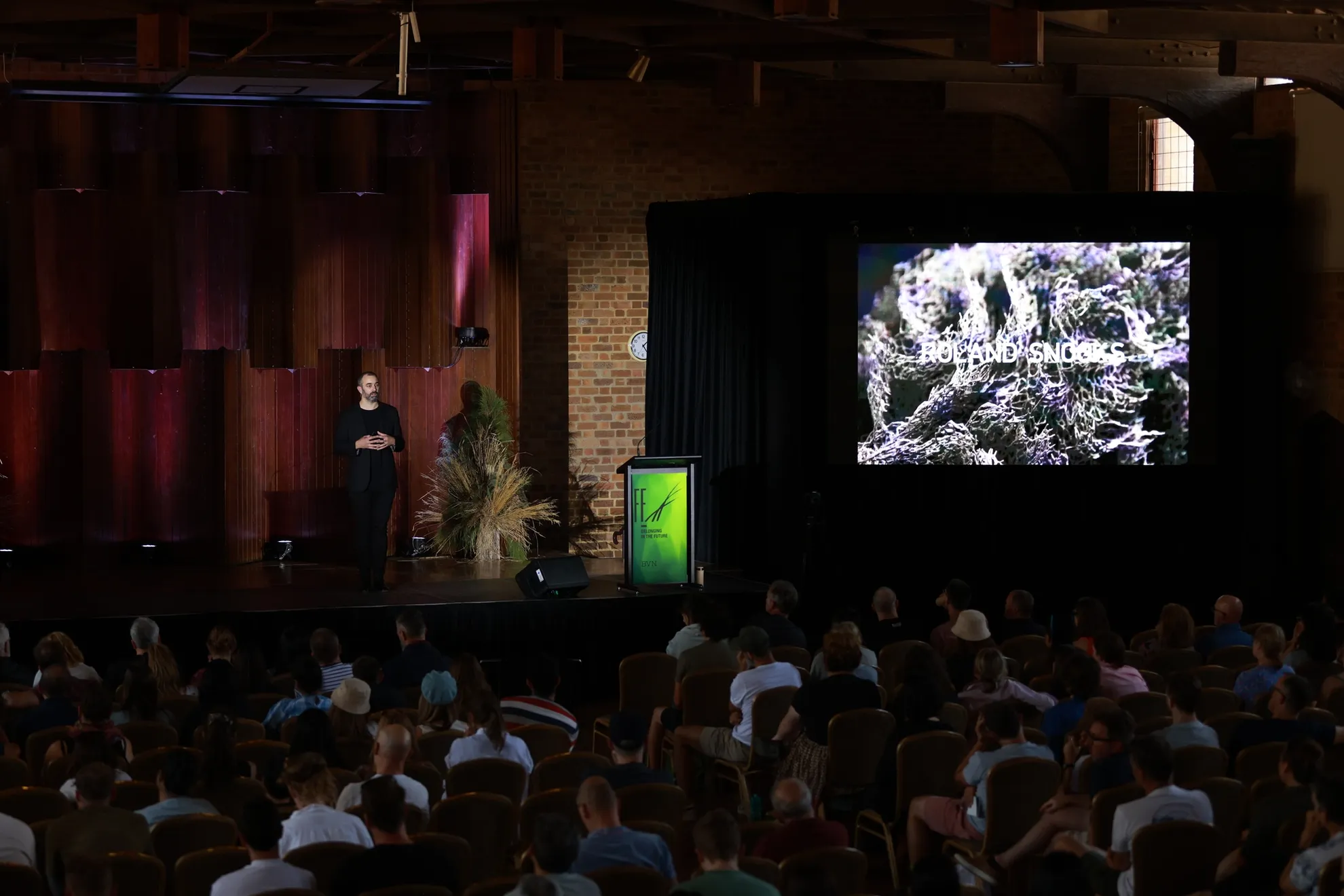
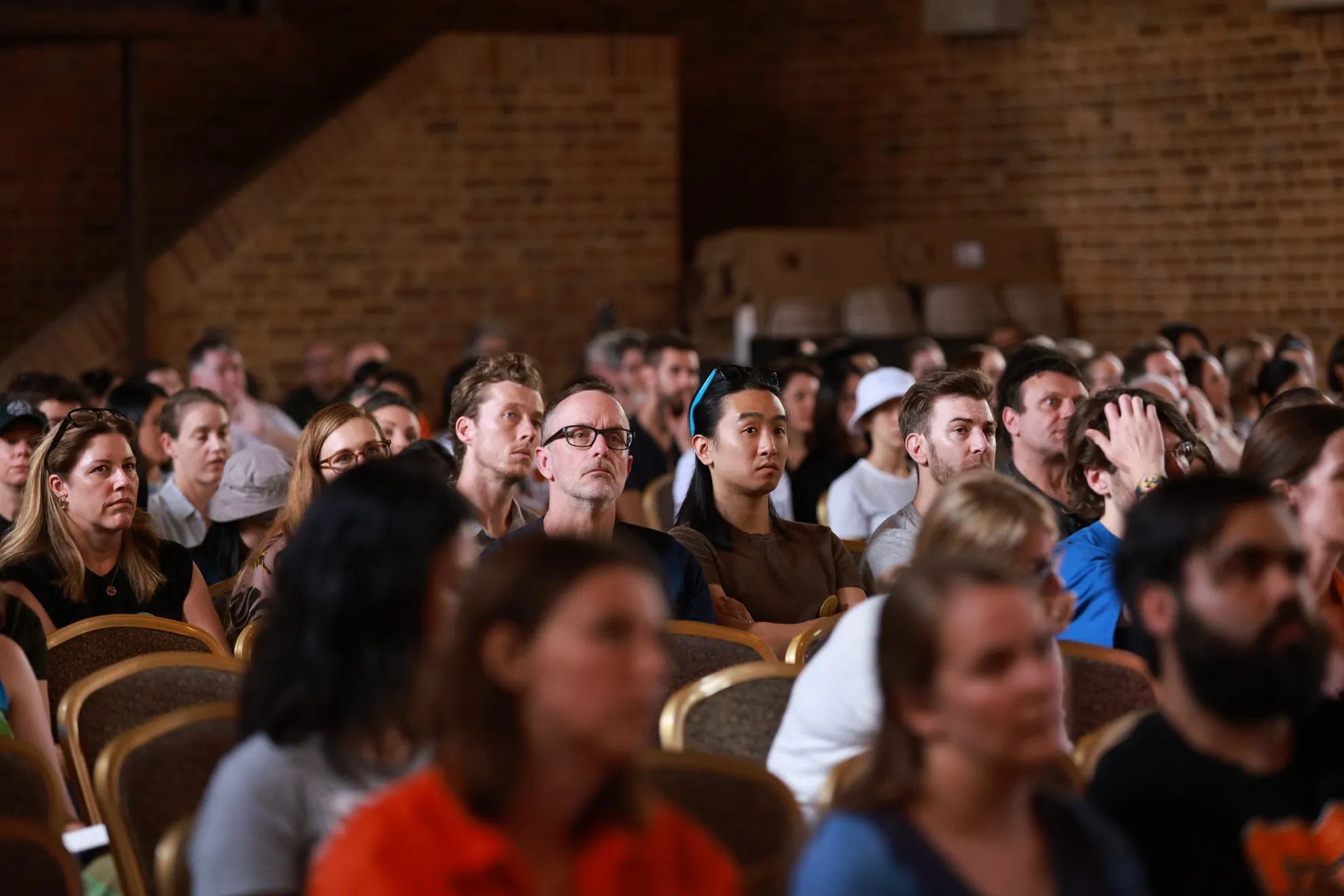
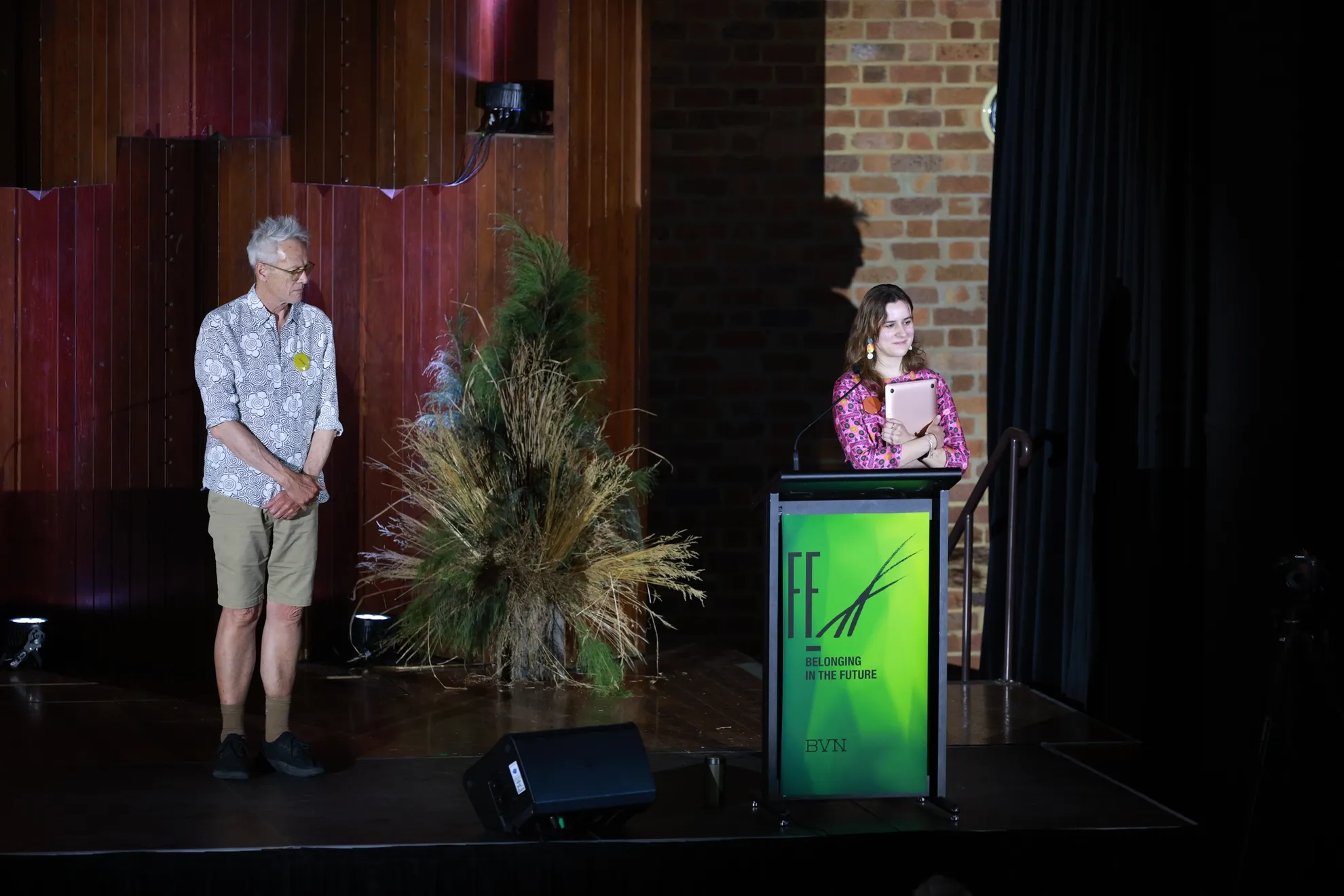

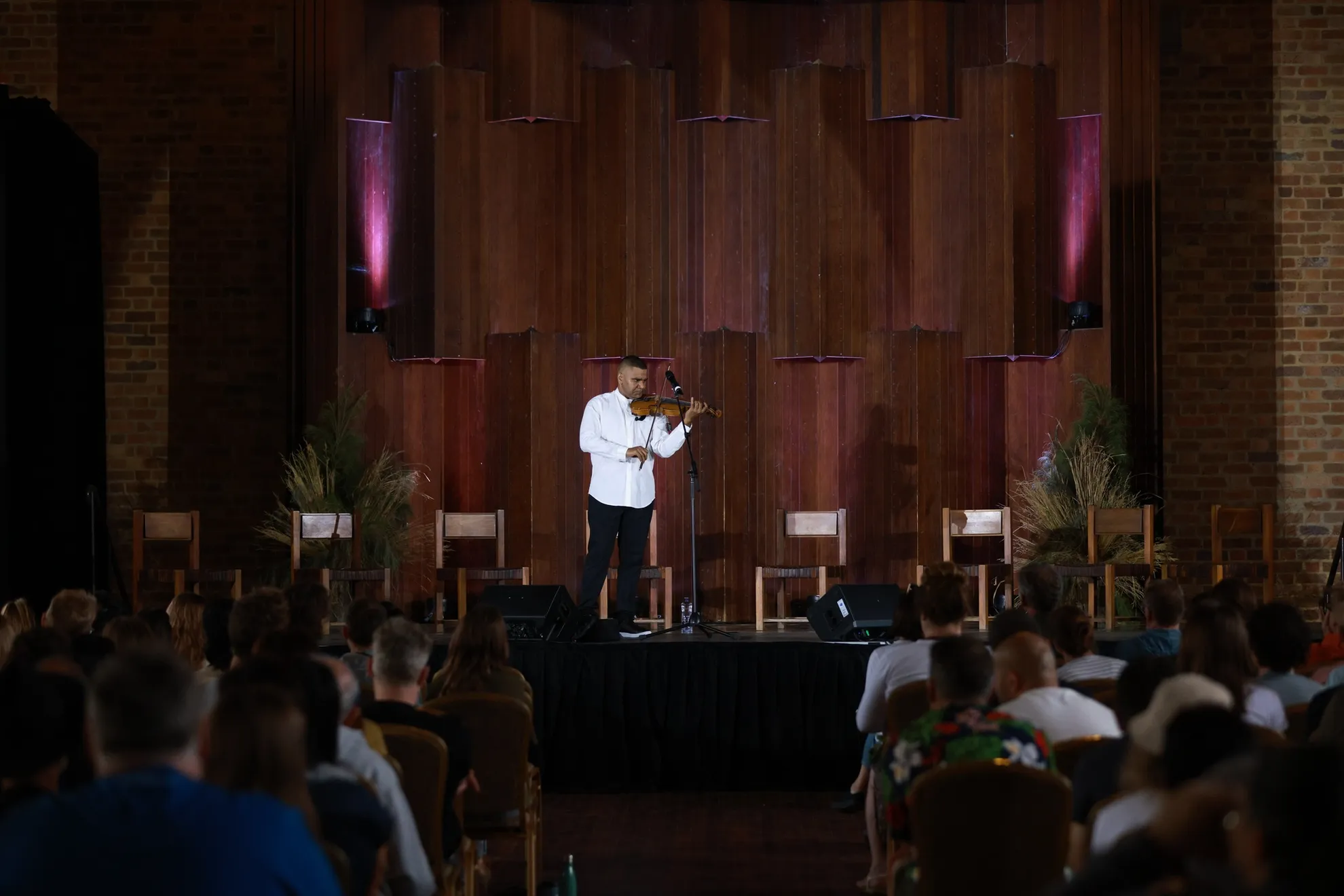
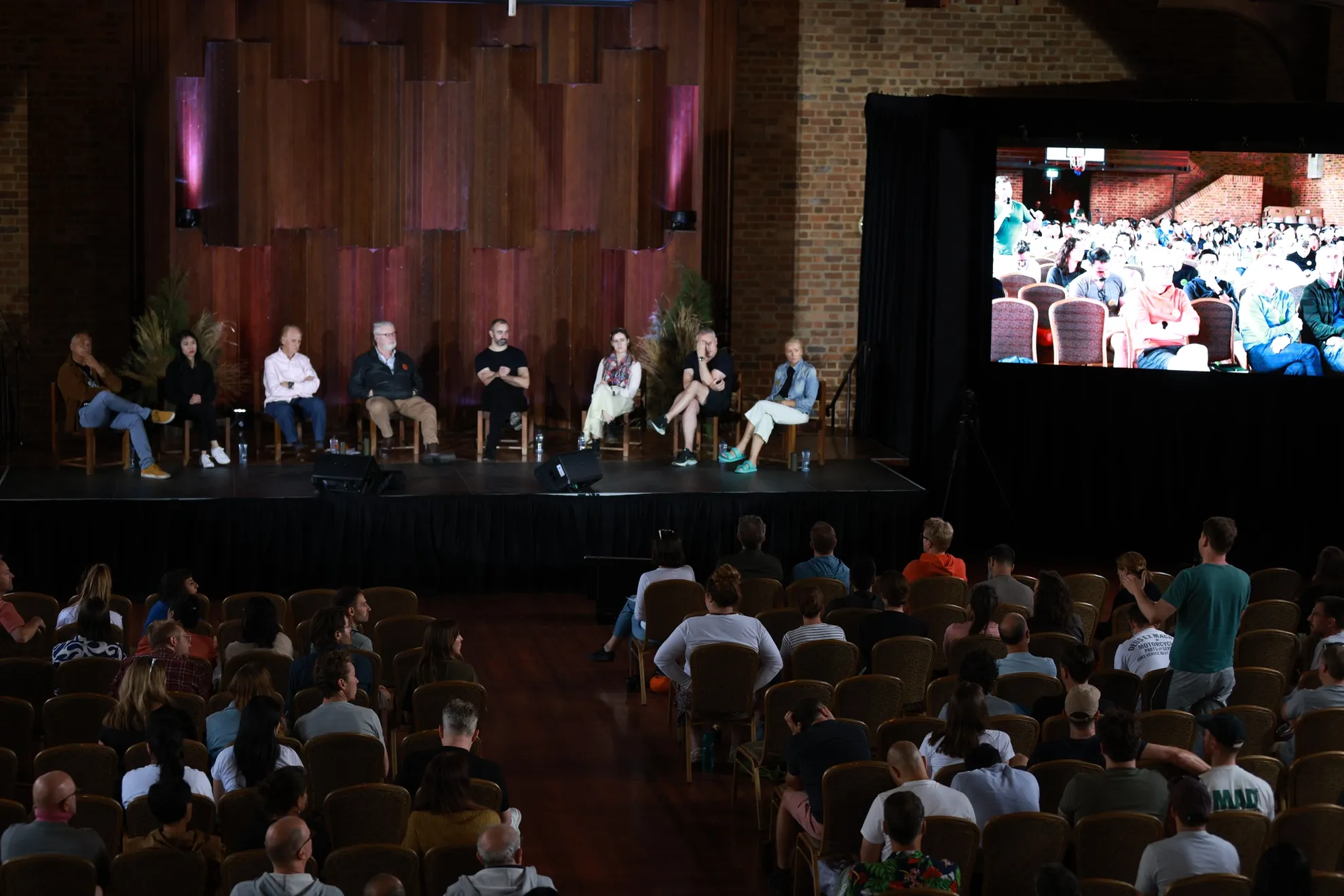
Ethicist and Philosopher Simon Longstaff rounded things off by bringing together the various perspectives and questions. He talked about “seeing” and ways in which this is shaped and framed. and the relationship between seeing and belonging.
He shared his personal experience early on in his career, working on Groot Island in the Northern Territory. Through his kinship with the Warnindilyakwa people, he learned to understand a world in which “everything is connected... as a whole, as one”.
Simon commented on the dangers of technology without ethics, and the importance of conscious choice. “We have the extraordinary ability to make ethical choices. And with that comes the obligation to wrestle with the difficult knowledge of what’s come before.”
His presentation ended with a reassurance that “we can belong here. But first we must see where we live.”
In curating Futures Forum, we wanted to showcase an importantjuxtaposition.
On the one hand, the burgeoning embrace of indigenous culture and its deeply rooted spirituality. And on the other hand, the urgent need for sustainable strategies engaged with and embodied in a synthesized technology future.
We came away asking ourselves:
What does that look like? What does it mean and how do we work together – as a society of equals – to make a survivable and sustainable future?
Futures Forum #3 is an evolution of BVN’s previous ideas festivals. These immersive sessions attempt to deepen our practice through contemporary philosophy. Between these engrossing and provocative conversations, the music of Ngulmiya and Eric Avery provided moments of reflection and emotion.
